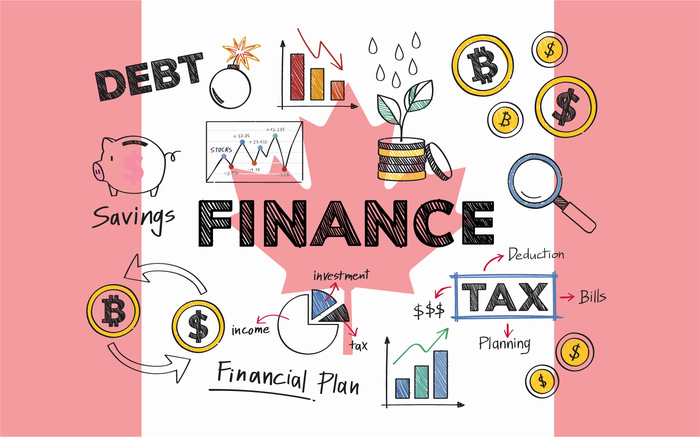Saving for retirement is crucial to ensuring a comfortable and secure future. The abundance of available options and strategies can make it challenging to determine the best place to begin, causing confusion and overwhelm. This article will provide expert tips and tricks to help you maximize your retirement savings, including investment strategies, retirement savings plans, tax strategies, and more. By following the advice outlined in this article, you can take control of your retirement savings and set yourself up for financial security in the years to come. So let’s dive in!
Understanding Retirement Savings
Before you can start maximizing your retirement savings, it’s essential to understand what retirement savings are and the different types of accounts available to you. This section will provide an overview of retirement savings and explain the importance of starting early.
Retirement savings refers to the funds you set aside to support yourself in retirement. Multiple sources can provide these funds, including retirement plans sponsored by employers such as 401(k)s and individual retirement accounts (IRAs).
Several types of retirement savings accounts are available to you, each with its benefits and drawbacks. Some common types of retirement savings accounts include traditional and Roth IRAs, SEP-IRAs, and 401(k) plans. Having knowledge of the various account options at your disposal can enable you to make well-informed choices regarding the most suitable investment avenues for your funds.
Finally, it’s important to start saving for retirement as early as possible. Compound interest has the potential to increase your savings exponentially over time. Therefore, the more time you have available to save, the greater the opportunity for your money to grow. Starting early can also help you avoid the need to play catch-up later in life, which can be much more difficult and stressful.
The next section will discuss strategies for maximizing your retirement savings.
Retirement Savings Plan
Creating a retirement savings plan is an essential part of maximizing your retirement savings. In this subsection, we will discuss how to set realistic goals, create a retirement savings plan, and stick to that plan.
The first step in creating a retirement savings plan is setting realistic goals. This involves determining how much money you will need in retirement and how much you need to save each month from reaching that goal. Many financial advisors recommend aiming to replace at least 70-80% of your pre-retirement income in retirement.
After establishing a precise target for your retirement savings, the subsequent action is to devise a strategy to attain it. This involves identifying the specific retirement savings accounts you will use, how much you will contribute to each account, and how often you will make contributions. You should also consider factors like your risk tolerance, investment time horizon, and tax situation when creating your plan.
Once you have a retirement savings plan in place, the final step is to stick to it. This involves making regular contributions to your retirement savings accounts, adjusting your plan as needed based on changes in your financial situation or goals, and avoiding the temptation to dip into your retirement savings for other expenses.
Formulating a retirement savings plan and adhering to it can guarantee that you remain on course to accomplish your retirement objectives while optimizing your retirement savings.
Additional Tips and Tricks
Apart from comprehending retirement savings and devising a retirement savings plan, there exist several techniques and tactics that you can adopt to amplify your retirement savings. In this section, we will explore a few of these methods, including investment tactics, tax tactics, and cost-cutting measures.
Investing Strategies
One way to maximize your retirement savings is to invest your money wisely. Some key investing strategies to consider include:
- Diversify your investments: Investment diversification necessitates distributing your funds across multiple asset categories (e.g., stocks, bonds, and real estate) to minimize your risk exposure and optimize your returns.
- Invest in low-cost index funds: Allocate your funds in low-cost index funds: Index funds are mutual funds that follow a particular market index (such as the S&P 500). They tend to have lower fees and outperform actively managed funds over the long term.
- Consider target-date funds: These funds automatically adjust your asset allocation based on your target retirement date, making them a simple and convenient option for retirement investing.
Tax Strategies
Another way to maximize your retirement savings is to take advantage of tax-advantaged retirement savings accounts. Some key tax strategies to consider include the following:
- Contribute to a 401(k) or IRA: These accounts offer tax benefits such as tax-deferred growth (in the case of traditional accounts) or tax-free growth (in the case of Roth accounts).
- Consider a Health Savings Account (HSA): If you have a high-deductible health plan, you can contribute to an HSA and enjoy tax-free growth and withdrawals for qualified medical expenses.
- Consider a backdoor Roth IRA: If your income is too high to contribute directly to a Roth IRA, you can make a non-deductible contribution to a traditional IRA and then convert it to a Roth IRA.
Expense Reduction Strategies
Finally, reducing your expenses can be an effective way to maximize your retirement savings. Some strategies to consider include the following:
- Create and stick to a budget: This involves tracking your spending and identifying areas where you can cut back.
- Pay off debt: Paying off high-interest debt (such as credit card debt) can free up money to contribute to retirement savings.
- Delay Social Security: Delaying your Social Security benefits can increase your monthly benefit amount and provide more income in retirement.
By using these additional tips and tricks, you can maximize your retirement savings and achieve your retirement goals.
FAQs:
What is compound interest?
Compound interest is interest earned not only on the initial principal investment but also on the accumulated interest over time. This means that your savings can grow exponentially over time, as each year’s interest earnings are added to the principal amount and then earn additional interest the following year.
How much should I save for retirement?
The amount you should save for retirement depends on a variety of factors, including your desired retirement lifestyle, your expected expenses in retirement, and your estimated lifespan. Many financial advisors recommend aiming to replace at least 70-80% of your pre-retirement income in retirement.
What is a target-date fund?
A target-date fund is a type of mutual fund that automatically adjusts the allocation of assets (such as stocks, bonds, and cash) in the portfolio based on the target retirement date of the investor. These funds typically become more conservative (i.e., have a higher allocation of bonds and cash) as the target retirement date approaches.
What are the tax benefits of a 401(k)?
Contributions to a traditional 401(k) account are made with pre-tax dollars, which means that they reduce your taxable income for the year in which they are made. In addition, earnings on the account are tax-deferred until you withdraw them in retirement, at which point they are taxed as ordinary income.
What is a backdoor Roth IRA?
A backdoor Roth IRA is a strategy for contributing to a Roth IRA when your income is too high to contribute directly. The strategy involves making a non-deductible contribution to a traditional IRA and then converting the funds to a Roth IRA.
How can I reduce my expenses to save for retirement?
There are many ways to reduce your expenses to save for retirement, including creating and sticking to a budget, paying off high-interest debt, downsizing your home, and delaying Social Security benefits. By identifying areas where you can cut back and making small changes to your spending habits, you can free up money to contribute to your retirement savings.




